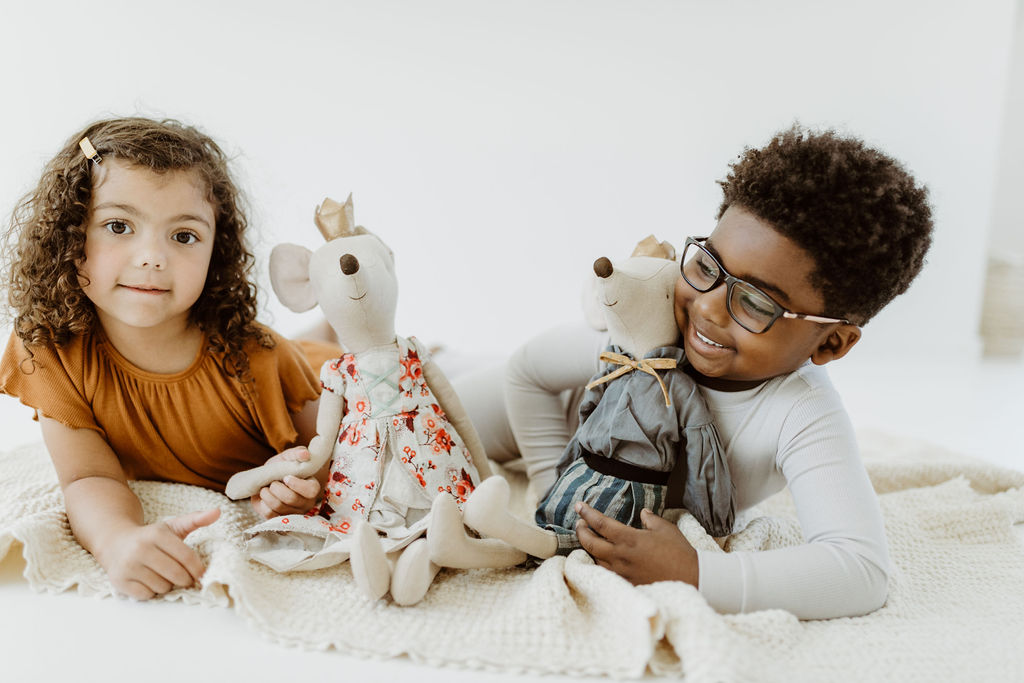The Social Benefits of Pretend Play
Of the five domains, physical, emotional, social, cognitive and language, the social benefits are the easiest to see.
By: Jodie V. & Sally Z.
Jodie is a Pediatric Occupational Therapist, FORT Pure Play founder & mom of three boys.
Sally is a Director of lower school, Curriculum Developer, 1st Grade Teacher & mom.
When we remember our own pretend play, we may see a charming dollhouse with its small family and miniature furniture. We may remember play kitchens and tea sets. Each of these tell a similar story about pretend play. During pretend play children act out social situations, often familiar ones.
Whether they play alone..
Whether a child plays alone or with others, pretend play scenarios are naturally social, with a cast of characters and an interactive story. One favorite scenario is the birthday party, complete with friends, cake, and gifts. Children love to explore the predictable rituals of the birthday, singing, blowing out imaginary candles, and wrapping and opening gifts.

Children also enjoy acting out other familiar situations, including family tasks like caretaking, cooking, and bedtime. They put dolls into strollers or tuck them into bed. They also play out scenarios at school, soccer practice or scouts. All of these scenarios have social aspects, and by pretending them, a child makes sense of the social world in which they live, developing their social intelligence as they play.

With a Maileg friend...
When children play-act these familiar situations, they can take on new roles, such as the teacher, coach, star player, or trouble-making student. They make the rules and decisions. They can also safely experience conflict. They might confront a bully or an unfair teacher. They might break rules that they would never break in real life. Pretending is a safe place to try on different personas. When they do this, children begin to understand other points of view. The ability to step into another person’s shoes will help them be a good friend and classmate, and ultimately to make fair and ethical decisions.
Or a Playmate...
When children play with a friend or sibling, there are even more opportunities for social growth. Pretending together requires collaboration, negotiation, sharing, and taking turns. Should the mice go hiking, or to the beach? How about if they camp at the beach? Where should they set up the tent? How many mice fit in the tent? These negotiations build important social skills. There are many social learning moments in play.

There are times where children won't agree or both want to play with the same toys. Through the inevitable conflicts, the children learn how to compromise and negotiate. When they treat each other with respect and empathy and enjoy their game, friendship develops. The skills that they develop in play will help them when they face conflicts on the playground, soccer field, and in the classroom.
They build invaluable skills
Children learn important social skills in pretend play. They greet and respond to friends, work out differences, learn to take turns, share, and articulate ideas and feelings. All this is done in their own spaces and imaginary worlds; a place where they feel the most secure. In this safe space, children practice skills before bringing them out into the real world of unknowns. So much happens in the child’s imaginary world. If you've ever listened to a child play imaginatively, you know just how much happens here. So much is processed, practiced and learned in the world a child creates through play.


